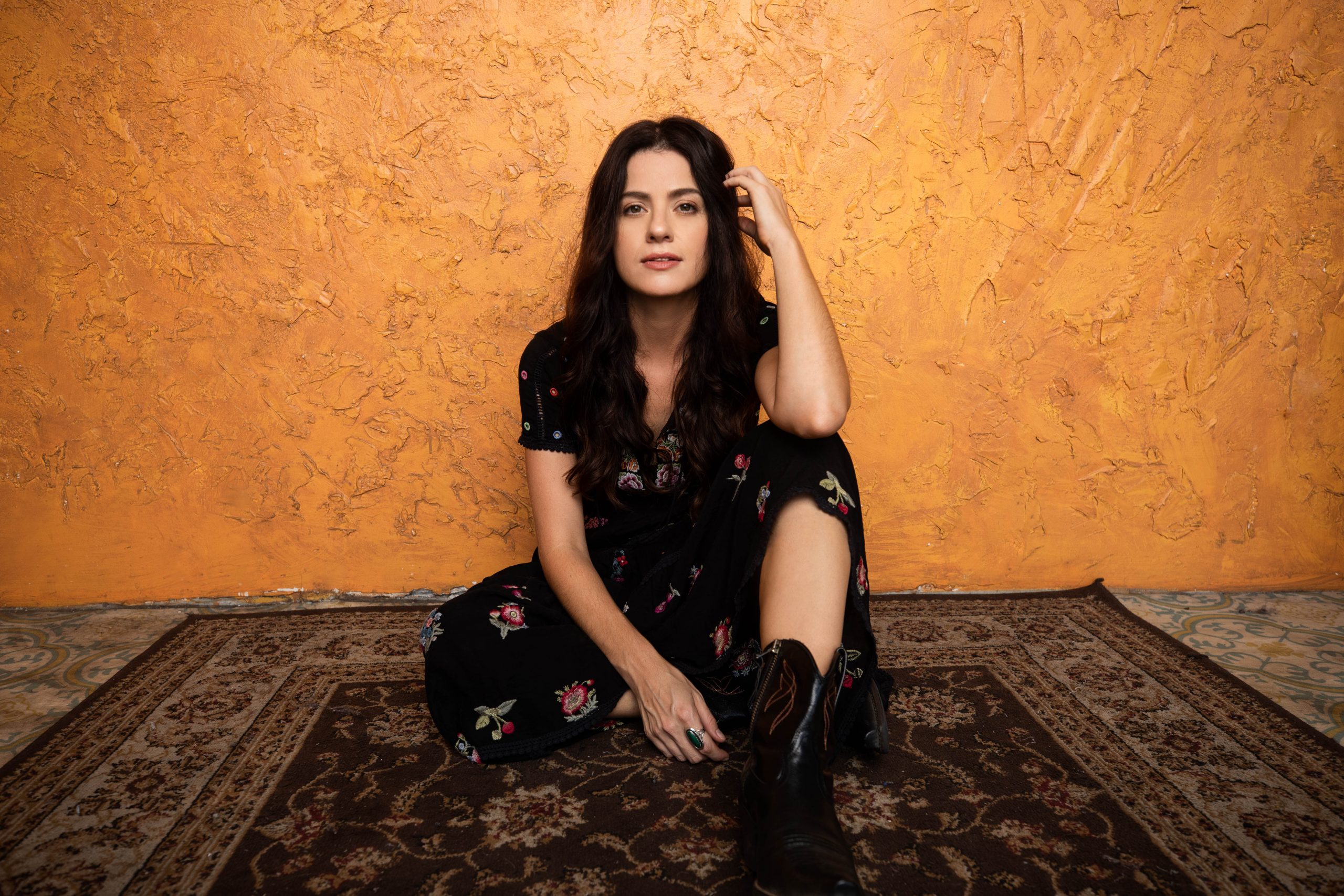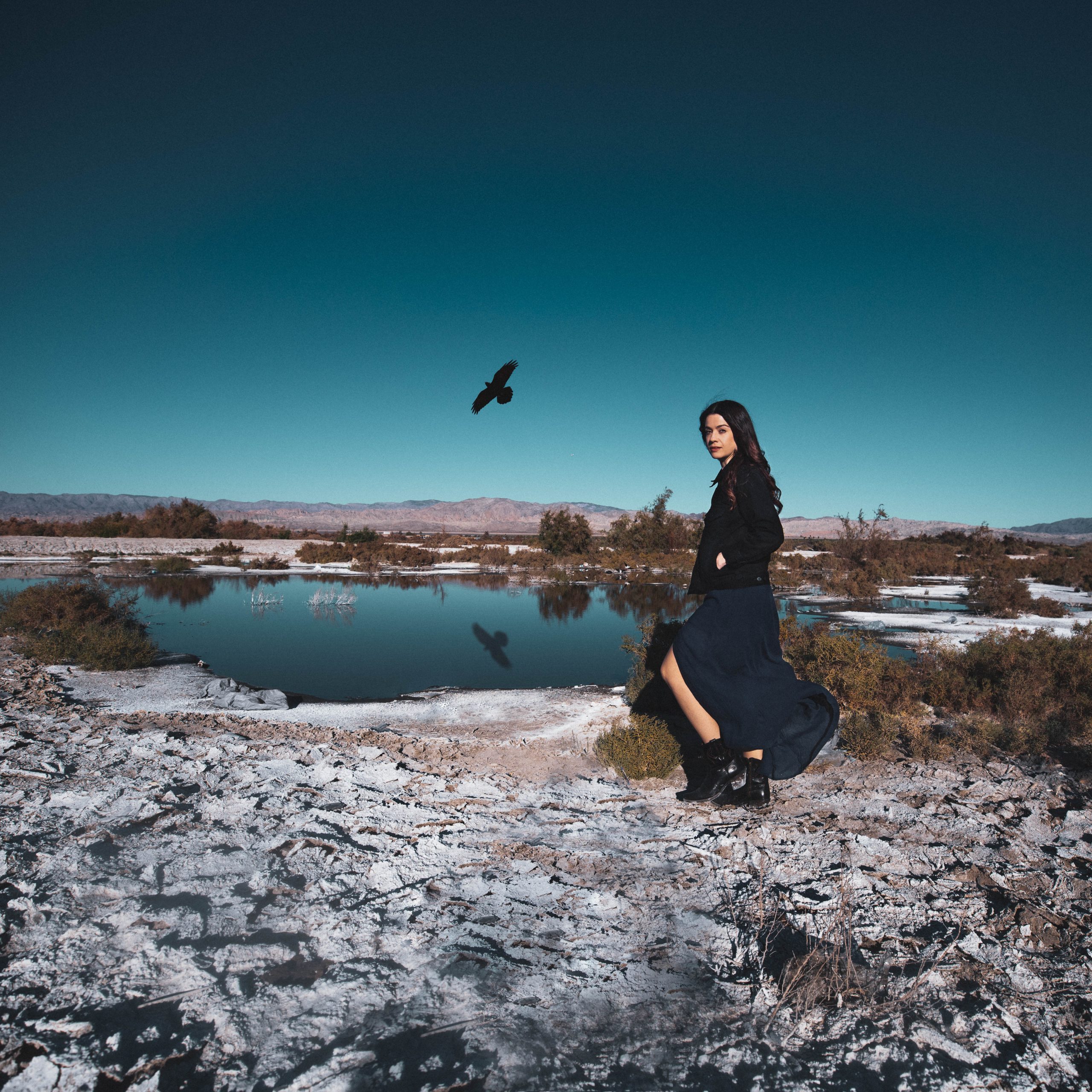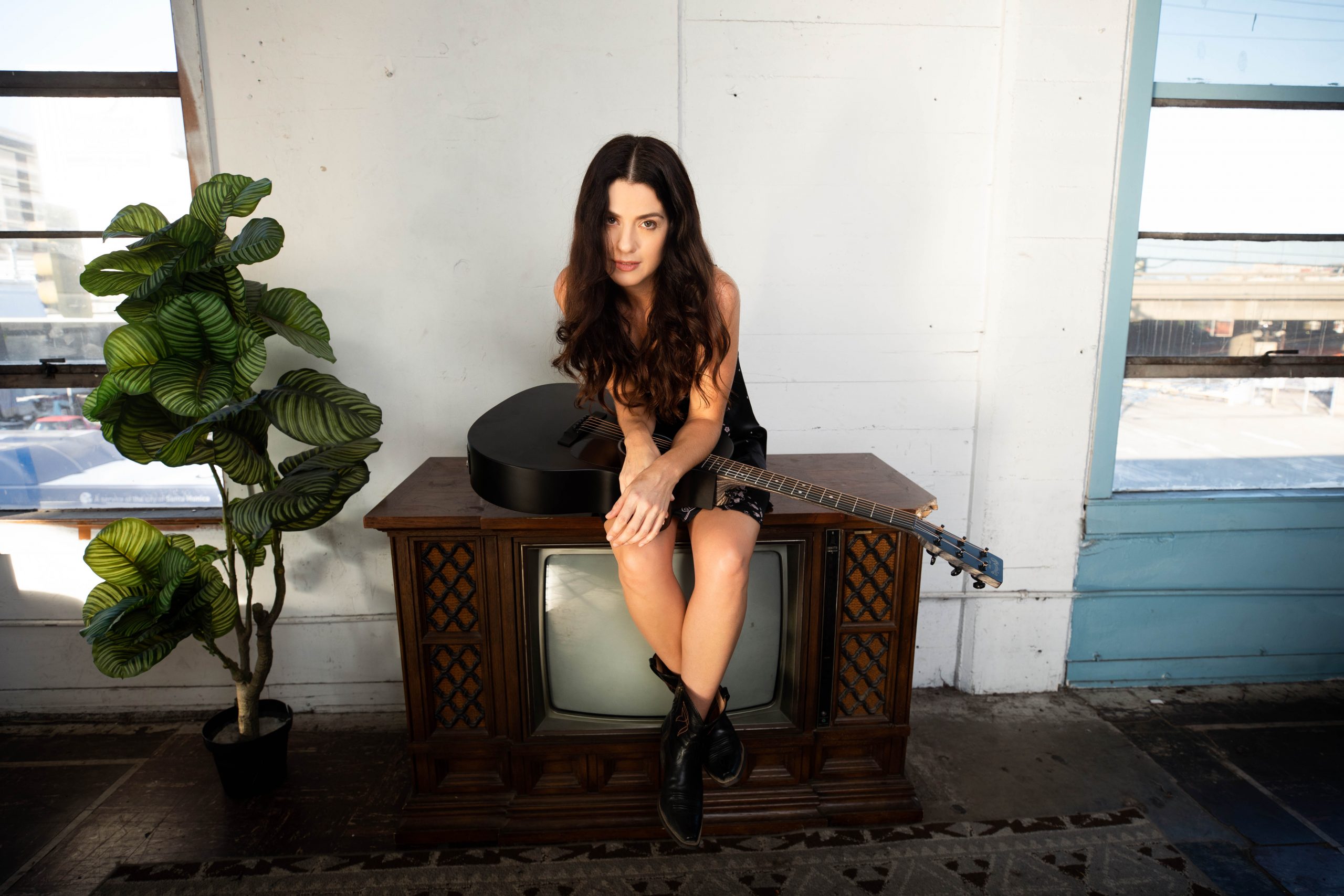
The definition of ‘siren singer’ varies but aside from the lore of mermaid women that would sing sailors to shipwreck, are tales of hybrid creatures with musical talent so wonderful they could calm the winds with their songs. As a standout in the Los Angeles folk scene, Alicia Blue possesses that unnameable quality that makes any great folk troubadour, the ability to not only address the winds of change but to calm them. In her exquisite new single “Blackbird”, Alicia Blue approaches the atrocities of assimilation faced by her Mexican ancestors.
“My grandfather, raised in Arizona, was hit in school for speaking Spanish. Rather than express the obvious outrage, the family assimilated, and Spanish was never spoken again in school.”
Always approaching the lyrics first, it isn’t surprising that Alicia Blue’s words command attention. Her ability to weave beautiful poetry into the rich stories she tells in her songs is uncanny. And of course folk music must tell a story but often overlooked is the importance in making the listener feel as though that story is worth listening to. Alicia’s pure delivery captures this immediately. Upon first listen to “Blackbird” it is as if Joan Baez shook hands with Ani Difranco and decided they’d take on the issues of modernity through explorations of ancestry—not bound to time, only guided by it.
“This is the slow chipping away of the Self, that when not prepared for the world, is compromised. It’s a shame. But this stuff that got smashed down doesn’t exit, it stays and hardens like a little rock, or even a diamond.”
We had the pleasure of catching up with Alicia and learning more about what emotions she intends to elicit through her singing and what alarm we must hear underneath her siren song…
Some of this song came from conversations about ancestors that were repressed and suffered into feeling like they had not enough of themselves left to speak through. Can you elaborate on some of these conversations and how your ancestry plays into your writing?
I think the trauma that comes from physical poverty is a trauma of the spirit if you don’t have the tools. If you don’t have mental and emotional support, inspiration and spiritual freedom. When these tools are not available, the silence ensues. My grandfather, raised in Arizona, was hit in school for speaking Spanish. Rather than express the obvious outrage, the family assimilated, and Spanish was never spoken again in school. This is the slow chipping away of the Self, that when not prepared for the world, is compromised. It’s a shame. But this stuff that got smashed down doesn’t exit, it stays and hardens like a little rock, or even a diamond. When it’s ready to be seen, to speak, it eventually comes out, sometimes in the next generation.
What comes first for you, lyrics or melody and music?
Always lyrics.
Tell us a little bit about the idea for the music video and how you came to create it?
I was in Palm Springs in July of 2020 and met Zoe Sher, the director, through our friend Lauren. A bunch of us were sharing new music we had recorded through the pandemic and Zoe dug the tune. She mentioned the possibility of making a video for it and I was elated. We were both set on the idea of this one long walking shot in hopes we could pull it off on a busy eastside street and we mostly did! I think we had a 5:45AM call time and wrapped by 9:30. The idea was here is this person walking through life, venting, but in a friendly way, making a few connections that keep her going.

You have a very classic folk quality to your delivery. Who were a couple artists that made you feel like you must sing? Anyone you emulated in your early stages of singing and songwriting?
I definitely used to try and sound like Joan Baez without really knowing it, and once I became aware of that I dug deeper and found something less pretty, at least that’s what ego thought. Of course you can say ‘well that’s not true’, but for me, pretty can distract. Which is probably why I always defend Bob Dylan when people say he’s not a singer. It’s silly, of course he’s a singer, and he hits every note to the effect he’s trying to elicit. Same with Neil Young. And then you hear someone like Joni Mitchell just throw it all out the window on Blue. Still pretty, but then intentionally abandoning in for some crazy intervals in her melody, that often sound really sarcastic. That’s the best.
Is “BlackBird” part of an album? What can we expect from you this year?
For now Blackbird is a single and I’m focused on writing for the next album.
Before the pandemic, did you feel there was a thriving folk scene in LA? And are you excited to rekindle that scene in 2021 (all things permitted)?
I think there was a thriving scene that involved folk influenced people, which is the best you can ask for. Though my music is rooted in intimate personal narratives and storytelling, there’s a gigantic range of genre flowing through it, but I’m always proud it nods to the folk vein that built the most trustworthy relationship I’ve had with music. My next record will blend that with something that sounds a bit bigger, which I guess would be called folk rock?
What are you most looking forward to this year?
Other than this vaccine roll out? Making a new record and hopefully going on tour.

CONNECT WITH ALICIA BLUE
photos / Tammie Valer
story / Chris Hess
